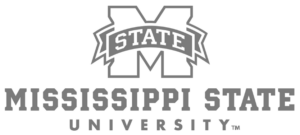The U.S. Department of Energy (DOE) today announced the latest round of cohorts in its Lab-Embedded Entrepreneurship Program (LEEP). Thirty-three innovators have been selected to be embedded across four U.S. national laboratories where they will work with an extensive network of mentors and experts to develop next-generation technologies. These technologies will help to ensure a sustainable and equitable clean energy future that benefits all Americans.
Since the program’s inception in 2015, 153 LEEP startups have attracted $2.73 billion in follow-on funding and created over 2,343 jobs. Past LEEP innovators have developed breakthrough technologies spanning American industries—and have launched successful U.S. manufacturing companies—that will help accelerate the nation’s clean energy future.
During their two years in the program, these innovators will perform critical research and development to hone their respective start-up technologies with the ultimate goal of advancing those technologies from lab to market. This program also supports innovators as they develop their entrepreneurial acumen, preparing them to launch successful energy and manufacturing businesses.
“The Lab-Embedded Entrepreneurship Program has become a cornerstone of DOE’s strategy to advance energy changemakers that are as different and diverse as America itself.” said Geri Richmond, Undersecretary for Science and Innovation. “LEEP alumni are at the forefront of America’s clean energy transition and the companies that have been born of this program have already made an enormous impact on American manufacturing and technology. We are looking forward to seeing how this newest round of fellows will change the face of American energy and manufacturing.”
Cyclotron Road at Lawrence Berkeley National Laboratory in Berkeley, California, is welcoming 14 new fellows:
- Advait Holkar (Los Angeles, California): A New Paradigm for Small Molecule Manufacture
- Carla Pinzon (Boston, Massachusetts): Accelerating Electrification and EV Adoption by Modernizing Grid Infrastructure
- Nosa Edoimioya (Ann Arbor, Michigan): Software-based Compensation for Nonlinear Vibration of Robots
- Hitesh Manglani (San Francisco, California) and Rakkiyappan Chandran (Boone, North Carolina): Greener, Safer, and Carbon Neutral Performance Biotextiles Made From Carbohydrates
- John Slack (Tempe, Arizona): Direct Air Capture of CO2 With Electrospun Nanofiber Air Contactors
- Gabriella Dweck* (Palo Alto, California) and Kelly Redmond* (San Francisco, California): A Sustainable Deforestation Free Alternative to Palm Oil Made From Recycled Biomass for Use in the Biofuels Industry.
- Mert Akin (San Carlos, California): Electrifying Lithium Extraction: Transforming Unconventional Brines Into Economically Feasible Sources
- Nikita Khlystov (Redwood City, California) and Nicholas Sarai (Los Altos Hills, California): Circularizing Textiles Using Just Water, Salt, and Enzymes
- Pauliina Meskanen (Oakland, California) and Nathan Weger (Oakland, California): Providing Zero-Carbon, Low-Cost, +1000°C Heat to Industries Like Cement, Steel, Glass, and Metals.
- Rushin Contractor* (Berkeley, California): Berkeley Surface-Emitting Lasers
Innovation Crossroads at Oak Ridge National Laboratory in Oak Ridge, Tennessee, is welcoming eight new fellows:
- Adam Stevens (Lenoir City, Tennessee): Combined Automation and Additive Solutions for Reshoring Metal Casting
- Brian Iezzi (Asheville, North Carolina): Integrated Photonic Fiber Barcodes for Unique and Durable Digital Labeling
- Jordan Cannon (Knoxville, Tennessee): Integration of Enzymes Into Poly-L-Lactic Acid for Enhanced Biodegradability
- Katy Bradford (Decatur, Georgia): Bio-based Extruded Wall and Floor System Panels
- Kevin Roccapriore (Knoxville, Tennessee): Scalable Atomic Quantum Computer
- Nicholas Sokol (Knoxville, Tennessee): Democratized Fertilizer and Enhanced Carbon Capture
- Tim Vosburgh (Meridian, Idaho): Rechargeable Zinc-Ion Battery for Energy Storage
- Vinit Chaudhary (Knoxville, Tennessee): Advanced Nonwoven Materials for Composites
Chain Reaction Innovations at Argonne National Laboratory in Lemont, Illinois, is welcoming five new fellows:
- Angela Feldhaus (Somerville, Massachusetts): Self-levitating Near Space Platforms for Atmospheric Sensing and Telecommunications
- Berk Kovos (Chicago, Illinois): Illuminating Designer Qubits for All
- Haining Gao (Cambridge, Massachusetts): Hybrid Solid-liquid Cathode to Boost Lithium Primary Battery Energy
- Jhana Porter (Houston, Texas): Conversion of Biobased Overage Streams into High-Value Polymer Bioproducts
- Scott Svadlenak (Corvallis, Oregon): Validation of Economic Viability of a Novel Process to Upcycle PVC
West Gate at National Renewable Energy Laboratory in Golden, Colorado, is welcoming six new fellows:
- Heather Platt (Golden, Colorado): Validation of a Transformative Sodium-Ion Cell Platform
- Julia Curley (Arvada, Colorado): Process optimization and scale up of mixed polyester recycling
- Michael Solomentsev (Austin, Texas): Efficient Power Processing for Data Centers
- Reamonn Soto (Daytona Beach, Florida): Wireless Vibratory Strain Sensors for Continuous Wind Turbine Structural Health Monitoring
- Simon Julien (Boulder, Colorado): A Novel Power Electronic Control Software Solution for Standalone Utility-Scale PV Assets To Provide Grid-Support Services
- Spencer Whitman (Commerce City, Colorado): Pit Lake Alkalinity Enhancement: A Novel Method for Cheap, Scalable, and Measurable Atmospheric Carbon Dioxide Removal
LEEP is managed and funded by DOE’s Advanced Materials and Manufacturing Technologies Office with additional funding from the Office of Energy Efficiency and Renewable Energy’s Industrial Efficiency and Decarbonization Office, Bioenergy Technologies Office, Building Technologies Office, and Solar Energy Technologies Office, along with DOE’s Office of Fossil Energy and Carbon Management, Office of Electricity, and Office of Science.
*Fellow was selected and funded through Activate.








